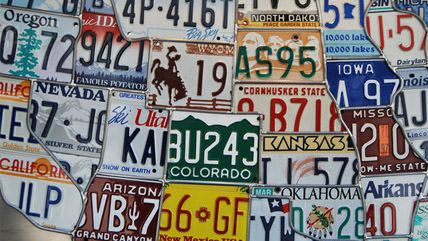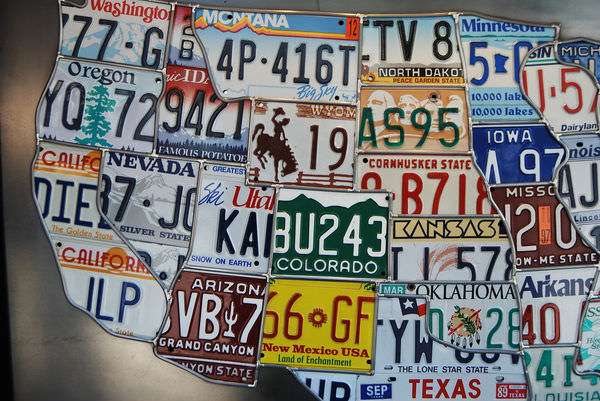Repo Businesses Building Huge Surveillance Network


People in the business of repossessing cars are increasingly also in the business of collecting and selling the sensitive data of bystanders.
The Boston Globe reports on "Manny Sousa's repo company" in Massachusetts, which uses automatic license plate readers to collect roughly 8,000 plates everyday. Sousa and at least nine others in the state send their data to Digital Recognition Network in Texas, which "claims to collect plate scans of 40 percent of all US vehicles annually."
Of course, the job of repossessing unpaid cars is legitimate if not popular. But, the vast majority of plates collected are of no interest to repo men. The Electronic Frontier Foundation explains that "license plate data allows the data gatherer," or whoever buys the information from them, "to track all movement in and out of an area; specifically target certain neighborhoods or organizations; or place political activists on hot lists so that their movements trigger alerts."
Reason's Jacob Sullum has previously suggested that license plate readers "raise privacy issues similar to those raised by GPS tracking," and that despite the conventional view that people do not have a reasonable expectation of privacy in public," court cases have affirmed that they do.
The American Civil Liberties Union told the Globe that regulating the use of license plate readers by businesses is the answer. Yet, attempting to legislate away private action would be ineffective. Government can never keep pace with technological developments. What appears to be a well-intentioned regulation today could prove to be a costly prohibition with unintended consequences tomorrow. Legislators from the local to federal level could, however, push for budgetary limitations and other restrictions on law enforcement's data collection abilities that would disincentivize the industry.
After all, government entities create a big chunk of the demand for companies like Digital Recognition Network. Police forces around the country has contracts with them, and as Reason's J.D. Tuccille noted recently, the Department of Homeland Security already pays billions to implement this type of technology and briefly considered creating a national database that would "give new life, purpose, and resources" to such businesses.
Editor's Note: As of February 29, 2024, commenting privileges on reason.com posts are limited to Reason Plus subscribers. Past commenters are grandfathered in for a temporary period. Subscribe here to preserve your ability to comment. Your Reason Plus subscription also gives you an ad-free version of reason.com, along with full access to the digital edition and archives of Reason magazine. We request that comments be civil and on-topic. We do not moderate or assume any responsibility for comments, which are owned by the readers who post them. Comments do not represent the views of reason.com or Reason Foundation. We reserve the right to delete any comment and ban commenters for any reason at any time. Comments may only be edited within 5 minutes of posting. Report abuses.
Please to post comments


You know, if the lenders tightened up their qualifications a bit, we'd end up with fewer repos.
Troops are cheap and it means you get your money plus interest. The existence of repos is why they can take a chance on people. Doing repos is just part of the business.
Loans should be detatched from whatever is bought with the funds. If this requires reducing bankruptsy protection for deadbeat borrowers who can't fork over enough money, so be it.
That is insane. There is nothing wrong with a secured transaction.
I find it morally reprehensible to encourage profligate spending with creditor-protecting policies. The more risk the creditor faces, the more they'll rethink giving people money.
Borrowing money via collateral is not that. It is no different than any other borrowing. No one could start a business without that. Worse, without a secured interest in a business's property, no one would ever loan money to a business.
You are arguing against capitalism.
So to you, debt is capitalism? Figures.
So to you, debt is capitalism?
Borrowing and lending are voluntary transactions involving capital, so, yeah, debt is a perfectly legitimate part of a capitalist system.
Pretty emotional language. Slow down. Take a breath. And re-think what you are saying. John is right.Your proposal is insane.
Nice passive-aggressive insertion of the word "encouraged" there.
The more risk the creditor faces,
The security interest actually increases creditor risk by making enforcement of the loan much easier.
Thanks for playing, though.
LIVE FEED
Either you SF'd the link or I put in my special They Live contacts this morning by mistake.
Dammit.
That's why I always steal a car instead of driving my own.
How about legalizing any/all technology, then see what's developed to thwart plate readers?
They can do whatever they like to track the deadbeat. But they shouldn't be able to track me or make money doing so. This should be illegal.
I suggest a slightly finer line: They can collect whatever data they can. However, identifying data cannot be sold without consent of the identified party. Think of a world free of mailing lists!
So you think phone books should be illegal?
Just totally ignore the "consent" part there, SD.
I've never been asked if I'm okay with my number being in the phone book.
Which is Brett's point, that you should have been.
"The more you drive, the less intelligent you are."
It's sad it took that many comments to dig into that treasure drove.
"The life of a repo man is always intense."
They don't pay bills in Russia. It's all free.
All free? Free my ass. What are you, a fuckin' commie? Huh?
A lot of people don't realize what's really going on. They view life as a bunch of unconnected incidents and things.
Plate 'o shrimp.
John Wayne was a fag.
The hell he was.
"Manny Sousa" That's like "John Smith" or "Jim Thompson" in Mass and R.I.
despite the conventional view that people do not have a reasonable expectation of privacy in public
Ordinarily I would agree with this.
But in this instance, we are talking about a state-mandated disclosure.
If the state did not require me to have a license plate, I would not have one.
That means that the data points that make this information useful - or harmful to me as the observed - only exist because of state violence.
I have no objection to private parties making use of whatever information they can glean from public observation, and agree that I have no reasonable expectation of privacy for things I do that are observed by private parties in that way - except when those private parties could not have observed something unless the state had forced me to do it.
To me, the essence of McCarthyism is the use of state power to extract information from citizens that private parties then use to punish or harm those citizens, particularly when those private parties had no way to independently get that information without state violence supporting them. "Using the Congress to force Communists to publicly reveal themselves so that private parties could boycott them," was the core activity of McCarthyism. That makes this case "McCarthyist" because it boils down to "Using the car registration system to force people to travel using a personally identifying tag, which private parties then use to track and log their activities to the subjects' detriment."
Very insightful, Fluffy.
This is a much better bright-line definition than mine above.
Time to start parking tail first, so they can't see my plate.
That's fine, unless you live in a state that issues license plates in pairs, like my state does.